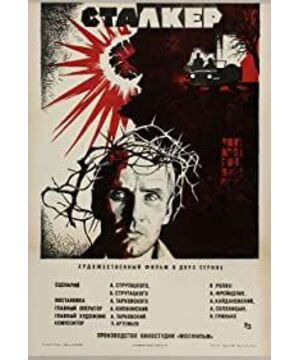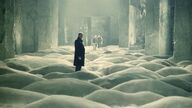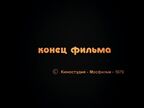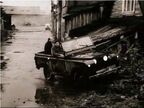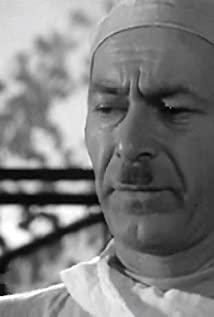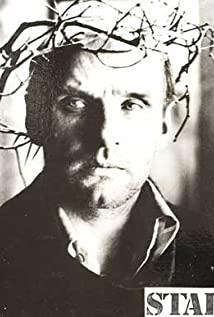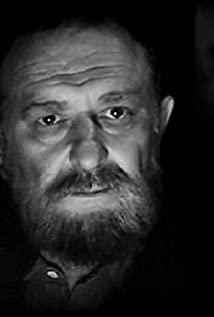Understanding "Stalker" can start from the overall aesthetic concept of the old tower. When he explained the concept of "image", he quoted a passage of Vyacheslav Ivanov many times:
"Symbols are only true symbols in the sense that they are inexhaustible and inexhaustible, expressing through cryptic (sacred and sorcery) utterances a connotation that cannot be conveyed by hints and verbal surfaces. A face, multiple meanings, always hidden in the deepest. It is like a crystal, and its structure is orderly. It is even like a kind of single-celled organism, which is different from the complex, which can be metaphor, allegory, metaphor... The symbol cannot be said. , inexplicable, and we only feel helpless in the face of its totality."
The film revolves around a stalker leading writers and scientists to explore a mysterious forbidden area called the "Zone". Their destination is the unreachable room in the "district". So, what is a "zone"? What are they after?
"District", like many other things in Laota's films, cannot be simply regarded as a poetic image or metaphysical metaphor, it does not have any symbolic meaning. "Zone" is the image itself, rather than the condensation of various meanings. "District" is the most authentic presentation of life, which leads to thousands of people, and everything in "District" is mixed with beauty and pain, so the stalker warns writers who rush forward: "District" will be because of People enter and change every moment - just like a "field" in the sense of physics, in the debate and opposition between faith and nothingness, dignity and exile, whether through dialogue or behavior itself, we feel When it comes to the strength of human existence, it includes stalkers who seem weak but stick to their beliefs, and writers and scientists who are enveloped in spiritual crisis and retreat at the door of the room.
"District" has become the stalker's only consolation and spiritual shelter. He has faith because of despair, and despair is born out of faith. We can imagine him as an ideal artist who sacrifices himself to serve the world. Writers and scientists are also desperate, but the former is based on the denial of human nature, and the latter is based on the burnout of technology. What they want is an exit, but the mud of despair will inevitably blind any exit. Therefore, in the end, the instinctive desire of the heart can be realized. In the face of the opportunity, the writer gave up cynically, and the professor tried to destroy with the technology he established.
The long-cherished conflict finally emerges with the help of a quarrel at the door of the room, which is followed by an intriguing silence of the three close together, the stalker breaking the silence at the most painful moment and proposing to move in forever with his wife and children.” The wish in the "area", there is no one here, and no one will hurt them again. As soon as he finished speaking, it started to rain in the room in front of him.
Does this rain mean divine grace is coming? I think of a scene in Bergman's "Still in the Mirror": Karin, who suffers from fantasy schizophrenia, believes that God will come from the closet. One day, to welcome God, he will perform a prayer ceremony, and the door of the closet will automatically open with a loud noise. At this time, an ambulance helicopter happened to be landing from the sky outside the window.
Jung once proposed this kind of coincidence between mental states and objective events, and called it Synchronicity. Through this design, Tarkovsky fuses meaningful coincidences into the center of intense emotion, by showing the stalker's sensitive vulnerability, by dramatizing his fiery thirst for miracles, we also gradually begin to expect some kind of supernatural. Occurrence of unknown events. Stalker's passion for love is so ardent that the synchronic phenomenon it creates makes the characters in the film feel the transcendence of subjective reality at the end. At this time, the "zone", as a once suspended metaphysical concept, gradually recedes. , the true image of life emerges: it is born of faith against misfortune, against ugliness, and everywhere is painful and everywhere is fresh.
The end of "Stalker" responds to this return to the poetic life, which has always been the core of Tarkovsky's artistic conception. The white snow outside the window, catkins fluttering in the house, the disabled daughter of the stalker is lying on the table and moving the three cups on the table with her mind. As the train passed, everything was shaken, and the girl began to be in a daze. You could hear the passionate march, the roar of the rails and the trembling of the glass windows for a long time.
Everything has to go on.
After passing through the "meat grinder", the stalker couldn't help but recite a poem from the old tower's father, Arseniy Tarkovsky, and ended with this:
Summer is gone, never to return, the high sun is still there, and the heat is still losing money.
Things will pass, like a leaf with five petals, falling on my palms, but the petals are still lost.
The evil is not exhausted, the good is not lost, the light shines in the world, but the light is still lost.
I am blessed with strength, stability and beauty, I should be glad, but it is a pity that I am still at a loss.
No leaves are withered, no branches are broken, the day is clear, like glass, but the day is still lost.
View more about Stalker reviews


